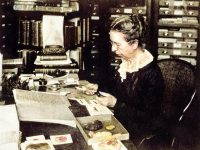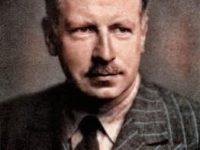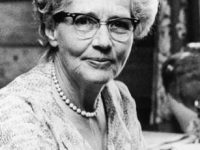Georg Wüst and the Motion of Water Masses
On June 15, 1890, German oceanographer Georg Adolf Otto Wüst was born. Wüst’s pioneering work on the Atlantic Ocean provided a new view of the motions of water masses between the northern and southern hemispheres and the first evidence of the concentration of water mass spreading in western boundary currents. He developed the first essentially complete understanding of the physical structure and deep circulation of the Atlantic Ocean. Youth and Education Georg Wüst was the son…
Read more











